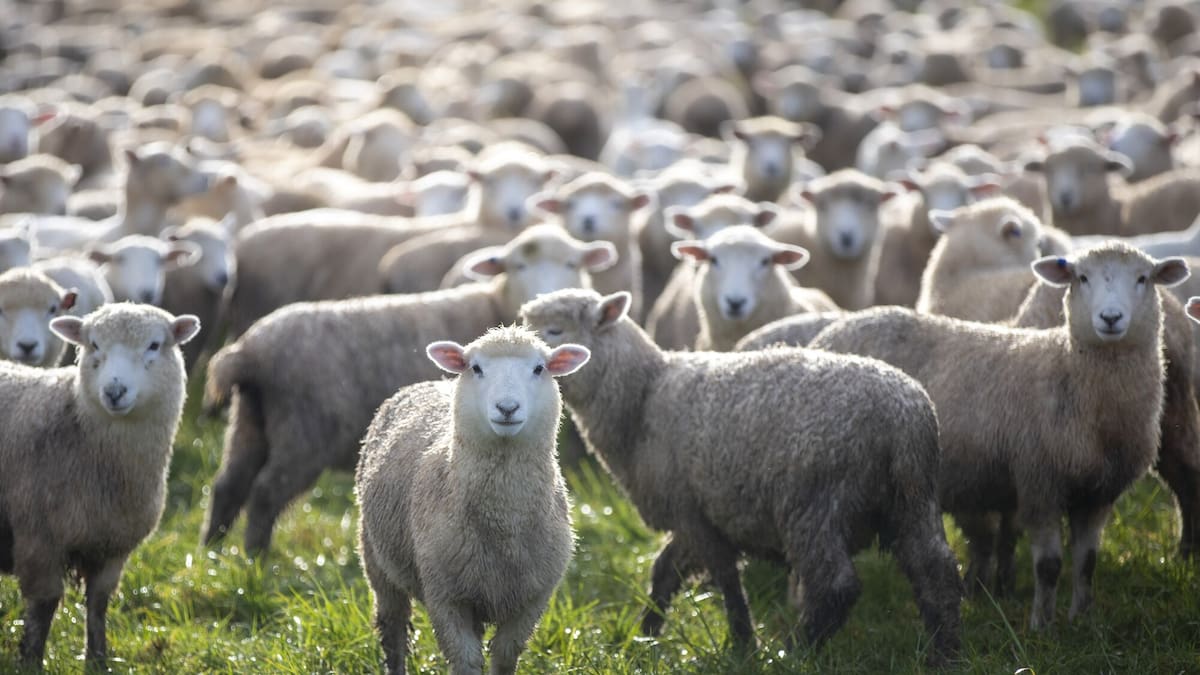The offer survived a last-minute challenge from a group of farmers who said they had secured “credible alternatives” to prevent the sale to family-owned Dawn Meats.
The alternative plan was light on detail but involved capital contributions from shareholders, some considered asset rationalisation and debt repayments via profits.
The cash-strapped co-op had until December 19 to repay $188m in bank debt.
Alliance Group chair Mark Wynne said the result demonstrated strong farmer confidence in the company’s future direction.
“Our farmer-shareholders have given a clear mandate for Alliance to move forward in partnership with Dawn Meats,” he said.
“This is a vote of trust in our people, our operations and our vision.
“We’re really excited about the potential for this partnership and what the future holds for Alliance and Dawn.
“This essential investment will strengthen our financial position, enhance our operational capability and enable us to capture more value in market for our farmers and the country.
“Importantly, the agreement also preserves farmer ownership, with a continuing 35% shareholding and strong governance rights.”
Wynne said the positive outcome followed a comprehensive two-year process to reset and re-capitalise the business.
“The board explored every option to secure Alliance’s future.”
The Dawn Meats proposal stood out as the best strategic and financial path forward, a view confirmed by independent adviser Northington Partners.
By combining Alliance’s lamb expertise and global reach with Dawn Meats’ strength in beef and market access across Europe and the UK, the co-op would unlock “significant commercial and operational synergies”.
Niall Browne, chief executive of Dawn Meats, said he looked forward to maximising the potential of the new opportunities the partnership would unlock.
“Following an extensive engagement and due diligence process, Dawn Meats put forward a strong strategic partnership proposal involving a significant investment in a world-class company that shares our values, ambition and commitment.”
Dawn Meats already had a strong operations network in Ireland, the UK and in the EU.
“Having the ability to now grow in partnership with some of New Zealand’s leading farmers, and create a year-round supply for our customers between the Northern and Southern Hemispheres, is a fantastic opportunity and one our customers are already responding to,” Browne said.
About $200m of the investment proceeds will be used to reduce Alliance’s short-term working capital facility, with the balance directed toward accelerating the board’s strategic capital expenditure programme.
Farmer-shareholders would also benefit from distributions of up to $20m in both the current (2026) and next financial year (2027).
In 2026, 45% would be paid as a dividend and 55% as a supply-based rebate.
In 2027, 75% would be paid as a rebate and 25% retained as earnings.
Rebate payments will be calculated on a three-year rolling average of supply and capped at the current shareholding.
In addition, up to $25m would be distributed as a dividend from the joint venture to the proposed Alliance Investment Co-operative following a stronger than forecast year-end result for Alliance.
“This outcome provides Alliance with a strong foundation for the future,” Wynne said.
The transaction comes at a time of strength in the New Zealand meat industry after last year’s slump.
Strong global demand saw New Zealand red meat exports reach $717m during August, a 22% increase year-on-year, according to an analysis by the Meat Industry Association (MIA).
The United States was the largest overall market by value for the month, up 9% on August 2025, to $203m.
Exports to China continued to recover, up 39% by value to $150m, and the UK increased by 109%, to $48m.
Sirma Karapeeva, chief executive of the MIA, said there was strong global demand and relatively tight global supply of red meat.
The Food and Agriculture Organisation of the United Nations Meat Price Index hit an all-time high during August.
“Sheep meat volumes increased by 15% from low levels last August but value increased by 54%,” Karapeeva said.
The average value of sheep meat for the month was $13.44/kg – slightly below the record value recorded in June but still 34% higher than last August.
Jamie Gray is an Auckland-based journalist, covering the financial markets, the primary sector and energy. He joined the Herald in 2011.
Listen and subscribe to the Today in Business podcast – the top headlines from the NZ Herald business team summarised and delivered by an artificial intelligence (AI) voice as an easily digestible recap.

